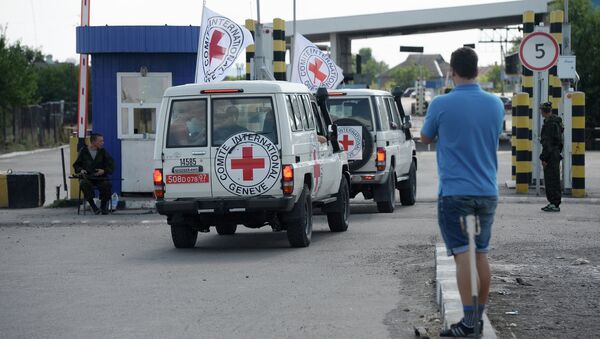"Since early December our staff have been able to resume activities in Donetsk and Lugansk. The situation remains highly volatile, and we need to proceed with caution. However, winter has settled in and we are striving to meet the urgent needs of the population," the ICRC's head of operations for Europe and Central Asia Laurent Corbaz said Friday.
The ICRC explained that because numerous apartment buildings and houses damaged by shelling in the Donetsk and Luhansk regions have become uninhabitable amid cold weather, the ICRC has provided glass and roofing materials to repair more than 7,000 apartments.
"One of our major priorities is to ensure that people have shelter, heat and food. These are the basics that people absolutely must have to preserve their dignity in these very difficult times," Corbaz stressed Friday.
Speaking before the UN General Assembly Maksimychev stressed that because Kiev has blocked the financial activity of Donetsk and Luhansk authorities, the most vulnerable segments of the population, such as retirees, veterans, disabled people and children have been left with practically no means to survive, which is a violation of international humanitarian laws.
According to the ICRC, some 450,000 people are estimated to be displaced within Ukraine, and approximately the same number of people are thought to have gone to neighboring countries in search of safety amid military confrontation between Kiev forces and independence supporters in Ukraine's southeast.
Since mid-August, Russia has delivered more than 10,700 tons of humanitarian aid to the Donetsk and Luhansk regions, having sent multiple aid convoys with food, water, power generators and medication to local residents.



